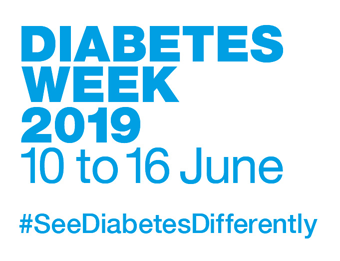
This week is Diabetes Week and Diabetes UK are working to raise awareness of the condition and demolish some of the myths and stigmas that are associated with the disease.
Diabetes is a condition where your blood sugar levels rise and your body struggles to control them. There are two main types..
Type 1 Diabetes – Is an autoimmune condition where the pancreas fails to produce enough insulin to control your blood sugar levels. At present we don’t know what causes type 1 diabetes and there is no known cure. Someone with this condition will need to administer insulin.
Type 2 Diabetes – is a metabolic condition where the body struggles to produce enough insulin. There are many different reasons why someone can develop type 2 diabetes but we do know that you are more likely to develop the condition if you are overweight or have an unhealthy lifestyle. Diet, exercise and medication are just some of the ways that type 2 diabetes can be managed.
Symptoms of diabetes
- Increase in thirst
- Going to the toilet more frequently
- Loosing weight quickly and without trying
- Fatigue
- Cuts and wounds taking longer to heal
- Blurred vision
Diabetes can affect your bladder and bowel
Diabetes doesn’t just affect your blood sugars. Having high blood sugars can also have a knock on effect and cause damage or problems with other parts of your body too including your bladder and bowel.
How does diabetes affect the bladder and bowel?
Bladder – High blood sugar levels can lead to a condition cause neurogenic bladder where the nerves to your bladder are damaged and can cause a range of symptoms such as urinary retention, frequency, overactive bladder, urinary tract infections and bladder urgency. Untreated UTI’s in someone with diabetes can lead to irreversible damage to the kidneys, so it is vital to get treatment as soon as you suspect you have a UTI.
Bowel – Certain medications used to treat diabetes can cause diarrhoea and/or constipation as a side effect.
You can help to lessen your chances of developing bladder or bowel symptoms by making sure that you keep your blood sugar levels in check and stick to a healthy diet and lifestyle including exercise.
You can read more about diabetes and the bladder and bowel on our website under the associated illnesses section
For more information on diabetes in general please visit the Diabetes UK website https://www.diabetes.org.uk/








